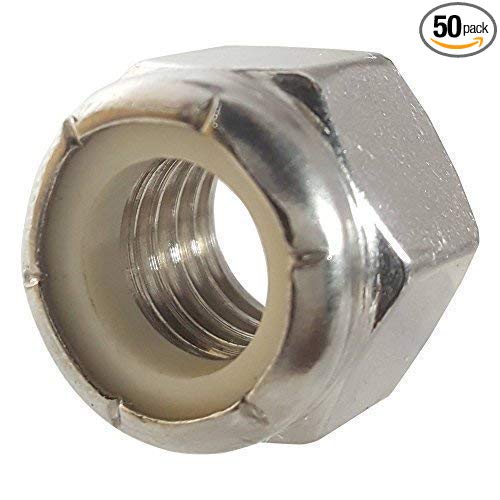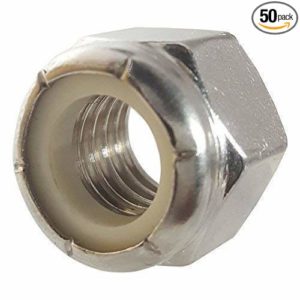Are you looking for nuts that can give you better performance than standard nuts? Consider lock nuts for motorized use. Our lock nut review will take you through all the relevant aspects regarding this form.
For a long time, i have been thinking about replacing the engine of my boat since it was old and was not working very well. I had problems finding a good engine, and I was trying to reduce the cost of replacing it. My main aim was getting nuts that could help me with my DIY project. I had used regular nuts in different areas such as my car, but I did not want to use them again on my boat. My research led me to lock nuts, and I was impressed by their locking capability and durability. I was able to mount the engine in place with lock nuts, and they felt very sturdy.
What are the specifications of lock nuts?
| Type | Nylon insert lock nut |
| Weight | 14. 4 ounces |
| Dimensions | 4 × 1 × 6 inches |
| Material | Stainless steel |
| Call to action | Check price here |
Lock nuts come in different forms, but we will focus on the Nylon lock nut. The problem with regular nuts is that they don’t offer good performance, especially on motorized parts. Nylon insert lock nuts, however, can retain their locking ability for long making them suitable for numerous applications.
Lock nut review features
Construction
Nylon lock nuts are different from the standard hex nut since they come with a nylon insert placed on one side of the nut. The diameter of this insert is smaller compared to the diameter of the screw. The work of the nylon insert is to lock the nut securely by friction against your screw.
The manufacturers use stainless steel to make this lock nut preventing it from corrosion. The material also makes them strong and durable so that you can use them for years without incurring high maintenance costs.
Application
Lock nuts are ideal for externally threaded items which measure at least 38 inches. When installing this lock nut on a threaded stud or bolt, the insert wraps around the thread so that it can lock the nut securely. The lock nut is better than using lock washers since it is not affected by factors such as vibration.
Before using them, check the nylon insert to ensure that it is not damaged. Once this is confirmed, you can now thread the lock nut on your bolt as you turn the nut using your hand clockwise. Turn it until it no longer moves. Make sure that you inspect the insert of this lock nut after installation to confirm that it is intact. If you experience seizing problems, you can lubricate the surface using anti-seize compounds or oil.
The nylon can regain its original form when you remove it on the bolt. It means that you can reuse this lock nut if the nylon insert is still in good condition. If you need to fasten a critical area, you may want to consider replacing lock nuts. Lock nuts, however, cannot function if the surrounding temperature exceeds 250 degrees Fahrenheit.
Pros
- It is made from a corrosion-free material
- It offers excellent resistance and is easy to install
- Vibration does not affect lock nuts
Cons
- Some people raise issues on seizing
- You may have problems trying to find the right size for your bolts.
FAQs
How do lock nuts work?
This nut prevents your bolts from loosening under torque and vibration. They deliver excellent locking action on outdoor applications such as automotive, aerospace and marine.
Can I use this lock nut on galvanized bolts?
Yes but in this case, you should always lubricate them using milk of magnesia. The lack of lubrication can make the lock nut seize up when used on galvanized bolts.
What makes normal nuts loosen after some time?
Different factors can contribute to this. For instance, overtightening nuts can sometimes damage the bearing leading to lubricant loss. Rust, the accumulation of dirt or excess paint are also possible factors.
Which locknut should I choose?
Your purpose should help you find the right lock nut. They come in different types and are designed for various fastening needs. Some of the common types include nylon locknut, jam nut, distorted thread, and split beam nut.
Conclusion
Are you tired of using usual nuts which keep on getting loose in critical parts? Switch to nylon lock nuts which can help you lock a fastener and prevent unnecessary movement. From my lock nut review, I discovered that this type is not only corrosion-resistant but also strong and versatile. I liked the way the solid elements create pressure against fasteners to provide a secure hold. The fact that vibration does not affect lock nuts is also an added advantage, and it gave me peace of mind.


